Can cyber tech be resilient and green?
EC MEDICI Framework
Session 161
Cybersecurity special track
Can cyber technology be resilient and green?
There are some key events that have characterised the recent period one of these is the so-called digital transformation considered the natural evolution of the current society in the light of a pervasive technology like digital technology. Digital technology is intertwined with almost all the life sectors. Since the dawn of digital technology, the number of application and solutions based on such technology had a surprising rate of growth. Nowadays there is no field of human knowledge that doesn’t take advantage or is based on digital: communication, education, government, health, energy, mobility, etc..
We are increasing leaving the analog, face to face, paper-based world to enter the intangible digital mediated one. At the same time, society already faced several relevant cyber infrastructure malfunctions and attacks due to hackers, some targeting Governmental or Law Enforcement agencies and Institutions, some targeting critical infrastructures, others targeting big companies. Nowadays we are surrounded by “critical infrastructures” managed by cyber components that, in case of attacks, may create minor or mayor impacts on our daily life.
The actual trend is to transfer to the digital domain as much as possible any “traditional” process and document, so in a glimpse government procedures and citizens documents and data will flow in the format of bit streams, sometimes, under the pressure of critical events this process wasn’t designed to ensure security.
Consequently, the more we become digitalised, the more we are vulnerable to hackers and hybrid threats. Of course, the overall scenario includes many other aspects and “shades”.
In the “analogue” world we had different pipelines and “channels” to perform, thanks to different tools and means, our activities, in the cyber world the whole activity depends on a single “pillar”: cyber technology.
The pervasiveness of cyber technology, the internet and the quick deployment of emerging number crunching applications is emphasizing energy consumption, at the same time the rapid pace of innovation in the field of consumers’ devices produces significant amount of waste to be recycled or disposed.
As a consequence, can cyber technology be considered green and resilient?
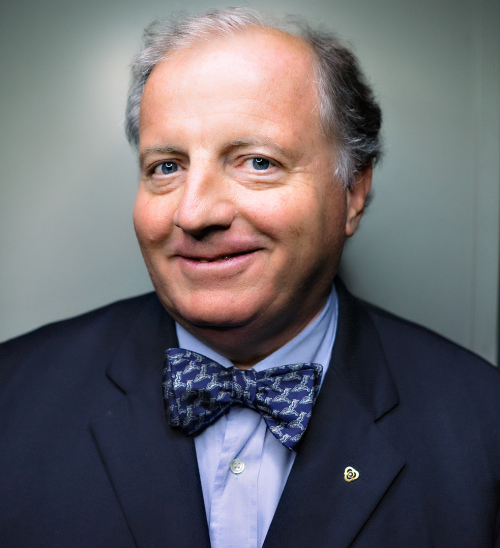
Alfredo M. Ronchi - professor at Politecnico di Milano (Engineering Faculty), Expert/advisor in e-Services, Head of the JRC S2D2 (Safety, Security, Defence, Disaster Recovery and Management) Politecnico di Milano, General Secretary of the EC-MEDICI Framework of Cooperation, delegate at UNESCO IFAP and active member of the WSIS since the establishment (2003-/). He is member WSA Grand Jury and President of eContentAward Italy, member of the Scientific Committee of Global Forum (F-USA), Sacred World Foundation (New Delhi), Fondazione Nuove Comunicazioni (Italy).
Mr Ronchi is member of the following Boards of Directors: Global Forum, World Summit Award, European Youth Award, European Education New Society Association (ENSA), Fondazione Italiana Nuove Comunicazioni. Member of the Keio University NoE. Member of the Advisory Board of the School of Law under the aegis of GD Goenka University (New Delhi, India). Ronchi is appointed as an expert by: European Commission (EC), Council of Europe (CoE), International Telecommunication Union (ITU), Italian Association of Banks (ABI), National Research Council (CNR). National and international project coordinator.
As Secretary of EC MEDICI Framework Ronchi promoted and coordinated, among the others, the following initiatives: “On culture in a world-wide Information Society” (1999), “Long-term preservation of digital content” (1999-2007), “Digital preservation of Intangible Heritage” (2005), “Fostering the “Culture” of cybersecurity” (2015), “e-Citizens: being human in the digital age” (2019). He cooperated as organizer or programme chair in W3C, ACM, IEEE, ITU-WSIS conferences; since more than thirty-five years he organizes and manages international conferences and workshops.
Author/contributor of more than 400 papers and various books on: e-Culture, e-Government, e-Safety & Security, and e-Services.
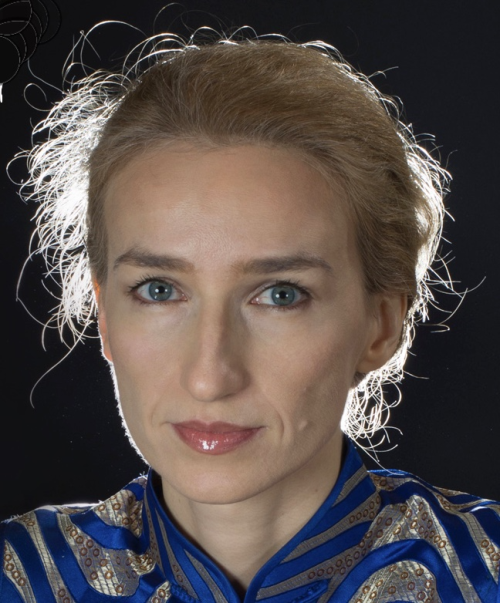
Alève Mine is at the origin of the study of recursive risk and the founder of the OneGoal Initiative for Governance, which just launched its Qaucus programme, and of the Zurich AR/VR Meetup, which was identified as a “key Swiss player” on the Gottlieb Duttweiler Institut’s extended reality map. Alève holds a M. Sc. from the EPFL (Ecole Polytechnique Fédérale de Lausanne) in microengineering (robots, nanotech, chips, sensors, materials, lasers, signal processing, computing, production lines, etc.) as well as a finance diploma from the St. Galler Management Institut (valuation, analysis), worked worldwide in the arts and is an ITU-T laureate. Alève is the author of “Storytelling Automation Principles”.
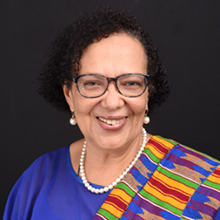
Dorothy K. Gordon is a Ghanaian technology activist and development specialist. She was the founding director general of the Ghana-India Kofi Annan Centre of Excellence in ICT (AITI-KACE).[1] She left AITI-KACE in 2016. She is former board member of Creative Commons and currently serves on its advisory council. She also serves on the board of Linux Professional Institute.
Currently she remains actively involved at Board or Jury level on a number of global initiatives working on defining a better technology mediated future. She is a board member and expert for the World Summit Awards.[9][10] She also serves on the board of directors of the Linux Professional Institute. She works on gender and technology with Chatham House and as Chair for the Working group on Information Literacy UNESCO/IFAP. She is also an Advisory council member Creative Commons Global and for kasahorow[11] an NGO that gives African language speakers around the world the freedom to express themselves in their own languages in the digital age.
She serves on the editorial board of the Journal of Cyber Policy as well as the International Journal of Gender Science and Technology. She is a long term Council Member of the Free Software and Open Source Foundation for Africa. She is also Chair of Literacy Bridge Ghana, which works to save lives and improve livelihoods of impoverished families through comprehensive programmes that provide on-demand access to locally relevant knowledge.
Madam Dorothy was at the just ended World Summit Awards Grand Jury in Ghana and spoke as the WSA Expert in Ghana. The event was held from November 3, 2018 to November 7, 2018.
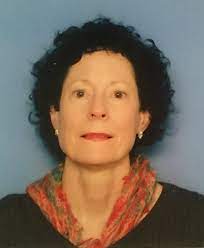
Dr. Lynn Thiesmeyer specializes in Asian sustainable development with a focus on Upper Mekong regional and rural development, including environmental and climate change migration and slow-onset disasters. She is Professor Emerita and Adjunct Professor of Environmental Information at Keio University, Japan’s oldest academic university, where she has been a professor since 1995. She has worked as an advisor and co-researcher with APEC (the Asia-Pacific Economic Commission), with the United Nations Development Program, UNESCO, the World Bank Gateway for Gender and Development, and the MEDICI Framework of the European Commission, and she was a Research Advisor to the Mekong Institute of Thailand. She has also been a lecturer for the United Nations Global Seminars in Japan and at the Graduate Program of Health Social Sciences of Mahidol University of Thailand. Her publications include Human Insecurity in East Asia (co-edited, 2009), Informal and Illegal Movement in the Upper Greater Mekong Subregion (2010), articles on environmental policy in ASEAN, and book chapters on security, spatial politics, and socio-economic and ecological impacts of development projects in rural areas of the Upper Mekong. In 2017 she received the Keio University Award for Career Research Achievement on Socio-economic impacts of Regional Development Projects in Southeast Asia.
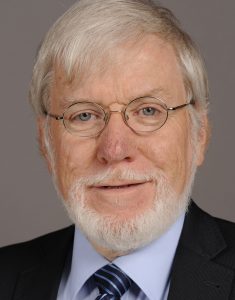
Christoph Stückelberger (born 1951) is Founder, was Executive Director (2008-2016) and is President (since July 2016) of the global network on ethics “Globethics. net Foundation”, based in Geneva/Switzerland and with ten offices on four continents. He is Executive Director of Geneva Agape Foundation in Geneva, mainly with partners in China. He is Prof. (em.) at the University of Basel, Distinguished Professor at the Technical University MEPhI in Moscow, Visiting Professor at GOU University in Enugu/Nigeria and at Kingdom Business College in Beijing/China. He got his doctor honoris causa (Dr. h.c.) from the UPC University in Kinshasa/DR Congo for his long-term engagement in Africa.
His main fields of research are economic/business ethics, trade ethics, finance ethics, political ethics, development ethics, environmental ethics and philanthropy. He published as author and editor many books and hundreds of articles on applied ethics, among others “Ethics in Higher Education” (eds. With Divya Singh, 2016), “Responsible Leadership” and four volumes “Global Ethics Applied (1500 pages), all downloadable for free.
He was Director of the Swiss Development Organisation “Bread for all” (14 years); Director of the Institute for Theology and Ethics of the Federation of Swiss Protestant Churches (4 Years); Editor-in- chief of a large Magazine (8 Years); Founder and President of Transparency International Switzerland; Member of the Commission for International Cooperation of the Swiss Government (14 years) and President of its sub-commission on WTO for several years; Member of the Swiss Ethics Committee on Non-human Biotechnology of the Swiss Government (9 years); Member and President of the Council of the Swiss Import Promotion Programme SIPPO to support imports from developing countries; President of the international microfinance institution ECLOF working in 30 developing countries (9 years); Founding President of the Swiss Association Church and Environment OeKU; member and consultant of various ethics committees of very large and small Banks (international, Switzerland, Germany, China) and a Sovereign Wealth Fund; consultant of international companies; member of Boards of academic Ethics Centers.
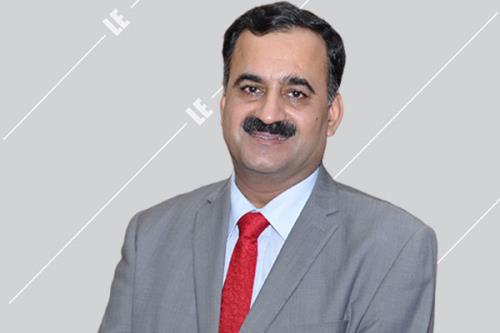
Dr. Pavan Duggal, is the Founder & Chairman of International Commission on Cyber Security Law. He is also the President of Cyberlaws. Net and has been working in the pioneering area of Cyber Law, Cyber Security Law & Mobile Law.Pavan is also heading the Artificial Intelligence Law Hub and Blockchain Law Epicentre. He is the Founder-cum-Honorary Chancellor of Cyberlaw University. Dr. Pavan Duggal is also the Conference Director of the International Conference on Cyberlaw, Cybercrime & Cybersecurity, being world's only authoritative Conference on Cyberlaw, Cybercrime & Cybersecurity. In addition, Dr. Duggal has also conducted various Round Tables on Cyberlaw, Cybercrime & Cybersecurity over the last couple of years. He has also organized various Thematic Workshops at the previously held ITU WSIS Forums.
-
 C1. The role of governments and all stakeholders in the promotion of ICTs for development
C1. The role of governments and all stakeholders in the promotion of ICTs for development
-
 C2. Information and communication infrastructure
C2. Information and communication infrastructure
-
 C3. Access to information and knowledge
C3. Access to information and knowledge
-
 C4. Capacity building
C4. Capacity building
-
 C5. Building confidence and security in use of ICTs
C5. Building confidence and security in use of ICTs
-
 C6. Enabling environment
C6. Enabling environment
-
 C7. ICT applications: benefits in all aspects of life — E-government
C7. ICT applications: benefits in all aspects of life — E-government
-
 C7. ICT applications: benefits in all aspects of life — E-business
C7. ICT applications: benefits in all aspects of life — E-business
-
 C7. ICT applications: benefits in all aspects of life — E-health
C7. ICT applications: benefits in all aspects of life — E-health
-
 C8. Cultural diversity and identity, linguistic diversity and local content
C8. Cultural diversity and identity, linguistic diversity and local content
-
 C9. Media
C9. Media
-
 C10. Ethical dimensions of the Information Society
C10. Ethical dimensions of the Information Society
The workshop will consider all the different impacts and fragilities related to digital transition. Taking adequately into account: ethics, privacy, human rights, freedom of expression and information, access to information and digital infrastructure, sustainability, environment and human ecosystem, cultural enjoyment continuity, cybersecurity, cyber-world resilience, need to improve capacity and establish a culture of security.
-
 Goal 3: Ensure healthy lives and promote well-being for all
Goal 3: Ensure healthy lives and promote well-being for all
-
 Goal 4: Ensure inclusive and equitable quality education and promote lifelong learning opportunities for all
Goal 4: Ensure inclusive and equitable quality education and promote lifelong learning opportunities for all
-
 Goal 7: Ensure access to affordable, reliable, sustainable and modern energy for all
Goal 7: Ensure access to affordable, reliable, sustainable and modern energy for all
-
 Goal 8: Promote inclusive and sustainable economic growth, employment and decent work for all
Goal 8: Promote inclusive and sustainable economic growth, employment and decent work for all
-
 Goal 9: Build resilient infrastructure, promote sustainable industrialization and foster innovation
Goal 9: Build resilient infrastructure, promote sustainable industrialization and foster innovation
-
 Goal 11: Make cities inclusive, safe, resilient and sustainable
Goal 11: Make cities inclusive, safe, resilient and sustainable
-
 Goal 12: Ensure sustainable consumption and production patterns
Goal 12: Ensure sustainable consumption and production patterns
-
 Goal 16: Promote just, peaceful and inclusive societies
Goal 16: Promote just, peaceful and inclusive societies
The WSIS Action Lines and UN SDGs are interrelated the discussion topics will carefully consider the enlisted goals with specific relation to goal 4, goal 7, goal 8, goal 9, goal 12, and goal 16.
The present session has close links with UNSCO IFAP reports, Cyber Ethics reports, Cyber Defence reports.